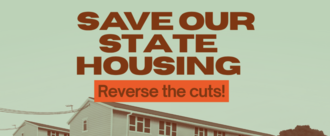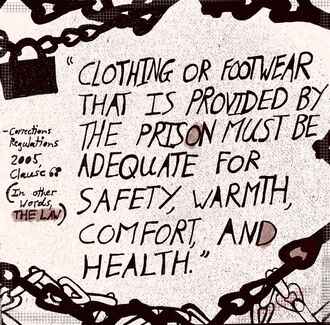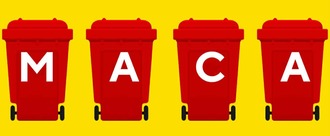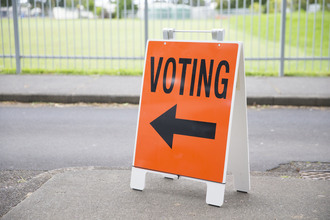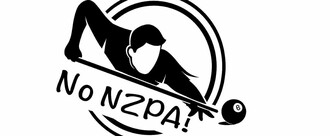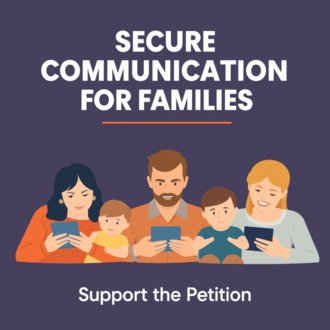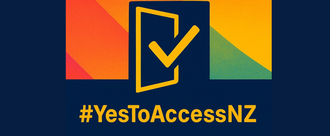-
Pause Charter-School Approvals Until Transparency & Safety Are GuaranteedOur children deserve access to safe and integrity-driven education. Right now, companies like Crimson are pushing charter schools through with almost no oversight, while making money off private tutoring. There’s already been abuse in one of their programs - a tutor with past convictions actually harmed children - and that shows the system isn’t keeping kids safe. At the same time, schools that are doing things right, like The Liger Leadership Academy, are being denied approvals. And Kelston Boys had its governance documents redacted in a way that makes it impossible to verify what actually happened. It’s not just bureaucracy - it’s about who gets to shape education for every kid in NZ. If Parliament doesn’t pause and review this properly, we’re basically giving public money and control to private interests with no accountability. That’s why I’m pushing this petition: it’s about safety, fairness, and protecting public education for everyone.2,592 of 3,000 SignaturesCreated by Brie Anglesey
-
Protect Te Tiriti in EducationAotearoa should be a place where everyone, regardless of their background, is respected and part of a vibrant connected community. Where everyone feels a sense of belonging and knows their children will feel the same. Te Tiriti o Waitangi is the blueprint to making this future a reality, it guides us to live peacefully and respectfully together so that everyone can thrive. It is vital that our children learn the importance of honouring Te Tiriti o Waitangi and continue fostering respectful and reciprocal relationships between tāngata whenua and tāngata Tiriti (people of Te Tiriti). Education is where Te Tiriti o Waitangi is made real for every generation. Section 127 of the Education and Training Act ensures that schools, early learning services and tertiary institutions give effect to Te Tiriti — shaping how our children learn about identity, belonging, and partnership. Removing this section is not a technical change — it is a step backwards. It erases the Crown’s responsibility to honour Te Tiriti in the one place every child in Aotearoa passes through: our education system. Te Tiriti is not an add-on; it is the foundation of how we work together as iwi and Crown for the wellbeing of all tamariki. We call on the Government to retain Section 127 and reaffirm its commitment to Te Tiriti o Waitangi in education.24,086 of 25,000 SignaturesCreated by National Iwi Chairs Forum
-
Save our State Housing in Ōtautahi/ Reverse the cutsEveryone in Aotearoa deserves to be housed; this is a basic human right. People should have agency over their housing, and it should be designed to be fully accessible. This would strengthen communities in Ōtautahi, as people will be able to put down roots and build connection. It will support our whānau to thrive, and provide the stability needed for a thriving city where everyone can live a decent life. Successive governments have failed to ensure everyone in our community has suitable housing or any housing at all. Now, the National-led Government has cancelled Kāinga Ora developments, plan to sell off state housing and make it less available to our communities. This will lead to more people living in unaffordable and unsuitable private rentals, in their cars and on the streets. It also means that state-owned land will be privatised that should otherwise be returned to hapū and iwi for Māori housing solutions. In Ōtautahi we have: - 1500+ households on the Housing Register - 6753+ people experiencing Severe Housing Deprivation (homelessness) *Census 2023 (grown since data was collected) And still, this National-led government has decided to cancel 25 developments, 373 homes that were in the pipeline, that would've housed whānau in need in Ōtautahi. They are also selling state homes to the private market The Government says it is supporting Community Housing Providers (CHPs) to play a bigger role in social housing provision, yet it expects to fund only 70 new CHP homes in Ōtautahi by 2027, and only four have been delivered so far. We know from our own history and from overseas research, that when governments play a bigger role in providing decent and suitable housing, we as a country lay the foundation for thriving communities. We have built state housing at scale as a solution before, and we can do it again. The people of Ōtautahi who are living without shelter or safe and affordable homes need our community to stand in solidarity to save our state housing. We need all 373 Kaianga Ora houses to be built. We are calling on Minister for Housing, Chris Bishop; Minister for Māori Development, Tama Potaka; MP for Ilam, Hamish Campbell; MP for Christchurch Central, Duncan Webb; MP for Christchurch East, Reuben Davidson; MP for Banks Peninsula, Vanessa Weenink; MP for Wigram, Megan Woods to advocate for the people of our communities to ensure that everyone has a decent, stable and accessible home, and to stop the sell off.39 of 100 SignaturesCreated by Save Our State Housing Ōtautahi
-
Put Children First - Improve ECE Safety, Quality, and AccountabilityEvery family deserves to know their child is safe, nurtured, and receiving high-quality education the moment they walk through the doors of any licensed early childhood service. Yet, the Government is swinging a wrecking ball through early childhood education — slashing essential regulatory requirements and rushing through a wave of potentially harmful changes under urgency. These reforms put profit motives and the interests of service providers ahead of children and weaken the safeguards that give parents and caregivers trust and peace of mind. Let’s remind the Prime Minister, ministers of finance and education, the House of Representatives and the world that we don’t cut corners on our kids no matter what. Not here in Aotearoa. Not ever… 👉 See our full article on why this petition is necessary 👉 Follow our Facebook page for updates Sign the petition and tell the Government: • Put children first ❤️ • Stop harmful ECE reforms • Strengthen safety, quality, and accountability now!1,890 of 2,000 SignaturesCreated by ECE Parents' Council Aotearoa

-
Get people in prison the basic supplies they are legally entitled toThe Department of Corrections is failing to provide basic necessities like hygienic bedding, underwear, socks, shoes and thermals. This is a breach of human rights and a failure to care for those in state care. We demand that the Department of Corrections does better. People Against Prisons Aotearoa has been supporting prisoners individually with these needs, but as the situation worsens it has become apparent that work needs to be done to ensure that all prisoners receive appropriate clothing as a necessary part of Corrections custody. In the 2024/2025 year, PAPA provided people in prison with: • 240 pairs of underwear • 255 pairs of socks • 111 pairs of shoes • 102 thermals. In general, the requests PAPA have been receiving are because: necessary items are not being provided at all, the number of items provided isn’t sufficient for hygienic purposes or because the quality of these items doesn’t meet people’s basic needs. Why does Corrections not face legal consequences for failing its responsibilities to keep prisoners clean and warm? Corrections need to start doing their job. People Against Prisons Aotearoa will no longer be responsible for patching holes left by the Department of Corrections failing to meet its legal obligations, and a Government that fails to address this! We need you and the people of Aotearoa New Zealand to help us demand the Department of Corrections do their jobs and fulfil their legal responsibility. *image by Min Iles968 of 1,000 SignaturesCreated by People Against Prisons Aotearoa

-
Oppose the Amendments to the Marine and Coastal Area ActWe oppose the amendments because they will: • Override Treaty principles that protect the integrity of all Treaty-based mechanisms. • Undermine Treaty articles on protection and partnership. • Deprive all whānau, hapu and iwi of their legal rights to the marine and coastal environment. • Strip Māori of the kaitiaki status required to safeguard our marine and coastal ecosystems from environmentally hazardous development. • Require a level of control over coastal areas that is incompatible with tikanga Māori, and impossible to achieve due to the historical disruption through colonisation.21,559 of 25,000 SignaturesCreated by Hone Harawira
-
Deliver on your promise: A new single Redress Agency for survivors of abuse in care!We all want Aotearoa New Zealand to be a place where everyone can thrive. Certainly a place where survivors of abuse in State Care and in the Care of Faith-based Institutions can thrive. We know that what has happened to the estimated 250,000 vulnerable adults, children, and babies is a “national disgrace” according to Judge Coral Shaw, former Chair of the Abuse in Care Royal Commision of Inquiry. The Abuse in Care Royal Commission of Inquiry’s Final Report, Whanaketia: Through pain and trauma, from darkness to light, was very clear: “"As an immediate priority, the government and faith-based institutions should implement the 95 recommendations in the Inquiry’s interim report on redress, He Purapura Ora, he Māra Tipu: From Redress to Puretumu Torowhānui (2021), together with the recommendations of the design group, subject to any further recommendations made in this report." [1]” The Interim Report, He Purapura Ora, he Māra Tipu from Redress to Puretumu Torowhānui, has 95 Holistic Recommendations to improve the current redress systems (Ministry of Social Development, Ministry of Health, Oranga Tamariki - Ministry for Children and Ministry of Education) for survivors of abuse in care [2]. Summary of the redress recommendations are: • expansion of oranga, or wellbeing, services and support services for survivors and their whānau; • increased financial payments for survivors; • training for those working with survivors; • enactment of a right to be free from abuse in care, as well as a duty to protect this right; • an exception to accident compensation legislation; • improvements to the handling of survivors’ requests for records, including as few redactions of survivors’ records as possible; and, • a review of record-creation and record-keeping practices. On the 12th of November 2024, the Prime Minister, RT Hon. Christopher Luxon, finally and formally apologized to survivors of abuse in State and Faith-based care. He apologized to survivors for the horrific and harrowing abuse they have experienced while in care, he apologized to their family and whānau and he outlined some steps that the Government will take to address the Final Report of the Inquiry. He said: “"But I want to assure you it is our intention to have a new single redress system operating next year." [3]” On the 9th of May 2025, the Lead Coordination Minister, Hon. Erica Stanford announced changes to the redress system for abuse in care survivors. She announced: • Increasing the average redress payments for new claims from $19,180 to $30,000; • Providing for higher payments for the survivors who experienced the most egregious abuse; • Providing “top up” payments of 50% to survivors who have already settled claims to ensure consistency with increased payments for new claims; • Introducing a common payments framework so that survivors receive the same financial redress for similar experiences of abuse, regardless of where in state care that abuse occurred; • Increase system capacity to process claims from 1,350 to 2,150 per year from 2027 to reduce wait times for current claimants; • Implementing a seamless service so that survivors with claims with multiple agencies have those claims managed by one point of contact; • Introducing a single-entry point for survivors wanting to register new claims; • Introducing an independent review for people who are unhappy with their redress offer; and • Funding for redress agencies to provide survivors with access to supports and services. She said: ““I acknowledge that a key recommendation of both the Royal Commission and the Redress Design Group was for a new independent redress entity. “The Government was faced with a difficult choice: do we spend more time and money on setting up a new scheme, or do we provide more to survivors now through the current redress process? “For Budget 25 we have prioritised improving the current system as quickly as possible for survivors and investing in changes that have a direct impact for them." [4]” To date, the Government has only implemented 28 of the 135 recommendations from the Abuse in Care Inquiry that relate to the Government. [6] These reports from the inquiry shed light on the harrowing and horrific experiences that survivors faced while in the care of the state and faith-based institutions, and emphasise the profound impact that abuse has had on survivors’ lives. Now is the time for action: for people across Aotearoa to come together and be part of the process that ensures that survivors in Aotearoa can thrive. By signing this petition, you are standing up for the rights of survivors and sending a clear message to the Crown: They have a duty of care to survivors, and a duty to implement a new single redress agency and implement all of the recommendations from the Abuse in Care Royal Commission of Inquiry. Together, let's ensure that survivors are supported. Join us in this crucial fight by signing the petition today and spreading the word to your friends, family, and community. Together, we can make a difference and safeguard the future of care and help survivors of abuse in State and Faith-based Care to thrive. _________ References: 1 - https://www.abuseincare.org.nz/reports/whanaketia 2 - https://www.abuseincare.org.nz/reports/from-redress-to-puretumu/ 3 - https://www.1news.co.nz/2024/11/12/full-text-of-prime-ministers-apology-for-abuse-in-care/ 4 - https://www.beehive.govt.nz/release/budget-2025-invests-care-system-and-improving-redress-survivors-abuse-state-care 5 - https://www.abuseinquiryresponse.govt.nz/assets/Uploads/Proactive-release/Putahi-te-mauri-he-wai-ora-e-Redress-design-proposals-1.pdf 6 - https://www.abuseinquiryresponse.govt.nz/about-us/official-information/information-releases/cabinet-papers-and-minutes/proactive-release-of-decisions-about-the-governments-response1,188 of 2,000 SignaturesCreated by Ihorangi Reweti Peters

-
Open Letter: Urgent Consent Law Reform Needed in AotearoaShifting Public Expectations vs Outdated Law There is a growing gap between modern views of consent (especially among youth) and what our laws say. Schools and public discourse now emphasize that consent must be active and affirmative – that a “hesitant or reluctant” response is not true consent. Yet legal practice still often treats such behavior as consenting. Juries have been told that reluctant consent “is still consent”, directly contradicting how consent is taught in schools. HELP Auckland captured this sentiment at the petition launch: our youth are demanding a law that reflects the principle of “free and voluntary agreement”. Unless the law is updated to match contemporary understanding, we send a confusing message: that societal norms around respectful intimacy count for nothing once a case goes to trial. Current Political Context Since the 2023 election, progress on consent law reform has stalled. The new Coalition government has so far taken only a narrow step by amending the law to protect children under 12. Unfortunately, no similar initiative has been announced for older teens or for defining consent itself. Call to Action This reform has been called for repeatedly, supported by the public, and even acknowledged across political parties, but no government has yet made it a priority. Without prioritisation, change will never happen. Survivors will continue to be failed, and a broken system will remain in place. Parliament must enact an affirmative definition of consent — one based on free and voluntary agreement — and address age-based loopholes that allow predators to exploit teenagers. The Justice Select Committee has already given us a roadmap for change, and it is imperative that lawmakers follow through. A reformed consent law, shaped by survivors’ experiences, will better protect young people and demonstrate that Aotearoa’s legal standards match the values of its people. We call on the government to put this issue back on the agenda now, rather than delaying it further. To read our full letter, click on this link. If you would like to sign on behalf of your organisation, and add your logo as an organisational signatory, please contact Imogen Stone at [email protected].934 of 1,000 Signatures
-
Protect Voter Privacy: Expand Access to the Hidden Electoral Roll in AotearoaEvery person in Aotearoa should be able to enrol and vote safely, without fear that being on the electoral roll could put them or their whānau at risk. Enrolling should protect people’s right to participate in democracy while also upholding their personal safety and wellbeing. Currently, the electoral roll in Aotearoa is public, meaning names and addresses are openly accessible. For many people, including survivors of violence or those with past convictions, this creates real safety risks. While the hidden (unpublished) roll exists, it is very hard to access and requires extensive proof of current risk. This leaves many vulnerable people unprotected. It also undermines whānau throughout Aotearoa who don’t have the financial stability to get legal representation to support their application. For example, my dad (an ex-prisoner) didn’t feel safe enrolling in 2023. He applied for the hidden roll but was denied, even though he was genuinely worried people from his past could find him and put him and our family at risk. This could be achieved by: • Expanding access to the hidden roll by broadening eligibility so people with credible past risks can apply. • Making the application process faster, clearer, and easier to understand. • Ensuring decisions are made quickly, with clear reasons if denied. • Create a simple, accessible appeals process for those turned down.10 of 100 SignaturesCreated by Asher Thompson
-
Aotearoa's Pool Players Deserve Better: Remove NZPACue sports in Aotearoa should be games of skill, fairness, and community. When a governing body fails to protect players’ rights, ensure due process, and foster a positive culture, the whole sport suffers. Our players and these sports deserve leadership that upholds integrity, fairness, respect; leadership that wants the best for the sport and celebrates competition among players The NZPA has consistently mishandled disputes, disciplinary matters, and player relationships. Previous board members that have left due to complaints continue to have an unreasonable presence and strong influence over the NZPA. Players are subjected to unfair suspensions, bans, accusations without evidence, and inconsistent disciplinary processes. Those in positions of power have refused to recognise conflict and have behaved unethically and contrary to the rules they are obliged by. When players ask them to behave ethically and in accordance with the rules, they are targeted and removed from the association or its events. This has harmed the wellbeing of players, undermined trust, impacted the quality and progress of players and damaged the reputation of the sport nationally and internationally. Complaints include: • Suspensions and bans handed down without transparent processes or clear evidence. • Accusations of bullying, intimidation, and unfair treatment. • Lack of trust and confidence from top players and clubs. • A culture of fear, division, and exclusion rather than support and growth. • There are complaints against NZPA with the appropriate authorities Instead of protecting and promoting the sport, the current leadership has damaged its credibility. Many excellent players refuse to be part of NZPA; many venues will not host NZPA events and upcoming players are warned against them. This is destroying cue sports within and for our country. By signing, you are sending a clear message that players, clubs, and communities will no longer accept poor governance and unfair treatment. A strong public voice makes it harder for decision-makers to ignore the issues. Your support will help push for change, restore fairness, and give cue sports in Aotearoa, New Zealand the chance to thrive under leadership that players can trust. Together, we can protect the integrity of the game and the mana of those who play it. Te Karere Denied the opportunity to represent her country NZ Herald Denise Wilkinson's suspension NZ Herald Turmoil in NZ's pool community501 of 600 Signatures
-
No More Risk, Safe Ways For Families To Stay In TouchWe want a New Zealand where families of people in custody can stay connected safely, without fear, and where tamariki (children) continue to have meaningful contact with their parents. A world where incarceration does not unnecessarily harm children or whānau, and where rehabilitation is supported by strong family bonds. Currently, families often must provide their personal residential addresses to maintain contact with loved ones in prison. This creates significant safety and privacy risks, especially for caregivers and children. Many families are reluctant to communicate regularly because of these risks, leaving children isolated from their parent, and weakening family support structures that are proven to help reduce reoffending. This situation disproportionately affects vulnerable families, creating inequity and stress. For children, inconsistent or unsafe contact with a parent can have lasting emotional and social impacts, including anxiety, disrupted attachment, and increased risk of poor outcomes in education and wellbeing. Research consistently shows that maintaining strong family connections during incarceration: • Reduces recidivism: children and families can be a protective factor supporting rehabilitation.[1] • Supports tamariki wellbeing: consistent contact with a parent fosters emotional stability and resilience.[2,3] • Promotes fairness and equity: no family should have to risk safety to stay in touch. Currently, the lack of a secure, monitored communication platform prevents New Zealand from realizing these benefits. Families must choose between safety and contact, an impossible choice that can harm both parent and child. Implementing a secure electronic communication system: • Allows families to communicate safely without sharing private addresses. • Provides a child-focused option, letting tamariki exchange messages, drawings, or school updates safely. • Supports rehabilitation for people in custody by strengthening family bonds. • Reduces stress and safety risks for caregivers, improving overall family wellbeing. This issue needs to be addressed NOW because children are currently missing out on consistent contact with their parents, and families continue to face unnecessary risk. Modern secure communication systems exist internationally and could be adapted for Aotearoa, making this solution both feasible and timely.[4] References & Supporting Facts: [1] Reducing Re-offending (Corrections NZ): https://www.corrections.govt.nz/resources/strategic_reports/corrections_strategic_plans/creating_lasting_change_2011_-_2016_YR3/reducing_re-offending [2] Murray, J., & Murray, L. (2010). Parental incarceration, attachment and child outcomes.https://www.tandfonline.com/doi/abs/10.1080/14751790903416889 [3] Bowlby, J. (1988). A Secure Base: Parent-Child Attachment and Healthy Human Development.https://www.increaseproject.eu/images/DOWNLOADS/IO2/HU/CURR_M4-A13_Bowlby_(EN-only)_20170920_HU_final.pdf [4]Secure Video Calls with Prisoners - GOV.UK: https://www.gov.uk/guidance/visit-a-prisoner-using-a-video-call63 of 100 SignaturesCreated by Tania Topia
-
Say YES to “Access” #YesToAccessNZ | Words shape worldsWhy this matters ““Commit to replacing ‘inclusion’ with ‘access’ on 3 December. Maybe it sticks. Maybe it doesn’t. Maybe it’s the first step toward a more equitable Aotearoa.” Access is a right, not an invite. That’s why. ” 3 December 2025 is International Day of Persons with Disabilities and is the perfect moment to flip the script, start with words, and build the access-first Aotearoa we all deserve. Words shape worlds Did you know? “Inclusion” comes from the Latin includere - in (“into”) + cludere (“to shut, close off”). To include means to be invited into something that was closed to you. You’re still outside - until someone lets you in. Access, from accessus, means “to enter or pass through without barrier.” Not by permission. By right. “Inclusion is margarine. Access is the real butter.” You’ve grown up with “inclusion” as the go-to word. It’s soft. It’s comfortable. It’s on someone else’s terms. There are gatekeepers who “let you in,” “add you in,” “invite you in.” Access is hard - but worth it. It means building places, spaces, and systems from the start—not retrofitting after the fact. It means disabled people aren’t guests. We’re already here and leading. Why Access? In a world where Access is the starting point, not the add-on: • Disabled people live lives of substance, not subsistence • Every space—physical, digital, cultural, political—is designed barrier-free, with disabled people shaping the decisions that affect us • Access is built in: to homes, schools, workplaces, marae, theatres, cities • We are Diversity, not Deficit • We are experts in our own lives, not exceptions to be managed • We inhabit time and space with equity, not as invitees to worlds not made for us • Our identities - not labels - are seen. Our ways of being are sources of insight, not problems to fix This isn’t a dream. It’s the Aotearoa we can build when Access comes first. This isn’t just about ramps and captions Access is multi-dimensional: physical, cultural, emotional, financial, spiritual, intellectual, collective, and individual. Swapping “inclusion” for “access” reframes disability not as a problem to accommodate, but as a matter of rights, design, and justice. “When we say “inclusion,” exclusion still wins. If you can be “included,” you were already excluded. Access, once embedded, cannot be denied. ” Swapping “inclusion” for “access” is more than a language fix. It's an entire mindset shift. What’s the difference? A real life example from what we know - the arts. An 8 - 10 performance season might offer: • 2 sign-language interpreted shows • 1 audio-described show • Wheelchair seating for 4 people per show That’s Inclusion - a few seats at someone else’s table. On their time, Now imagine: • Every performance is NZSL interpreted and audio described • The venue adapts seating in real time for wheelchair users That’s Access - designed with us, led by us, from the very beginning. Inclusion is soft, almost easy, and on someone else's terms, there are decision makers, gatekeepers who 'let' you in, add you in, 'invite' you in. Access is hard, but it means you actively make the effort to build the places, spaces and societies for all from the very start, not accommodate after by invite only. The ask On 3 December 2025, swap “Inclusion” for “Access” in: • Official communications • Policies • Job titles • Public events Witness what shifts. Maybe it sticks. Maybe it doesn’t. But it might just be the spark. We say yes to Access - every day. You can too - even if it’s just for one day. Just like these artists and allies here at this link: Yes to Access. This campaign is disability-led, conceived over two years by disabled artists, researchers and creators with Touch Compass, and supported by allies across Aotearoa. ✊🏽 Words shape worlds. Swap the word. Shift the world. Sign the petition. Share it! #YesToAccessNZ784 of 800 SignaturesCreated by Touch Compass Aotearoa New Zealand


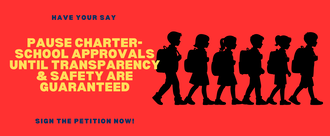
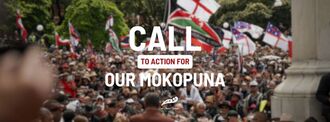.jpg)
